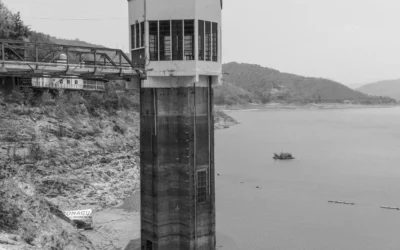One City's Response to a record-breaking drought Day Zero is an opportunity to capture some of the perspectives and experiences of the various sectors as the water crisis played out. It explains the different roles, responsibilities, and responses in a way that helps...
Ecological disruptions are a risk to national security
by Bradley J. Cardinale, et al in The Conversation…When the natural environment is stretched beyond its ability to meet basic human needs for food, clean air, drinkable water and shelter, it is not just a humanitarian concern for the world community. Research shows that these crises are a matter of national security for the U.S. and other countries.
Systemic risk and the polycrisis
by Florian U. Jehn in Existential Crunch…We now know that global systemic risk is the potential for disruption on a global scale, which is then realized because a single element in the system fails. The polycrisis is essentially the perfect storm we are experiencing right now of multiple global systemic risks being triggered at the same time, making each other worse and leading to a much more difficult response, as you have to put out so many fires at once.
It’s time for a new approach to the current context
by Phil Buchanan in CEP…Just in the past weeks I’ve heard leaders at philanthropic funders say things like ‘we’re trying to be small right now,’ ‘the lawyers are advising us to stay under the radar,’ ‘we’re letting others do the talking right now,’ ‘we’re laying low until we understand what everything will look like in six months.
Building trust for resilient societies: The global listening project amplifies local voices
by Heidi Larson in Myriad USA…Larson would like the GLP to play a role in a new approach to preparedness and resilience. “I hope that policymakers and programs put people at the center of these responses,” she says. “Obviously we need scientific, technical, and structural preparedness. But we also need to involve people more, to listen to them, and to engage with them before the next big crisis.”
The future is in our roots
from blog by Nnimmo Bassey…When one part of an ecosystem is destroyed, it impacts or destroys all the other parts. This means, nothing exists in isolation of everything else. Thus, the web of life is the interrelationships that hold everything together – something we often do not think about.
The verbs of resilience
by Andrew Zolli…I’ll be referring to resilience in the “property of systems and people” context noted above, to describe the (mostly) beneficial ability to persist, recover or even thrive amid disruption.
Google confirms Gmail upgrade—3 billion users must now decide
by Zak Doffman in Forbes…In the last year we have seen one Gmail/Workspace AI upgrade after another. This won’t stop. And so it will become ever more important for users to be clear as to what they’re agreeing, how it works, and what opt-ins and opt-outs are available.
The last drops of Mexico City
by Rodrigo Cervantes and Jérôme Sessini on longlead.com…Every day, for most of her life, Norma, a 68-year-old woman from the outskirts of Mexico City, has struggled to get something that many of us take for granted: drinking water.
A Logic For The Future
from the Long Now Foundation…Stephen Heintz and Kim Stanley Robinson will discuss our polycrisis, and the swift and holistic reform of global governance institutions that is needed to respond to these urgent transnational and planetary challenges we are facing.






